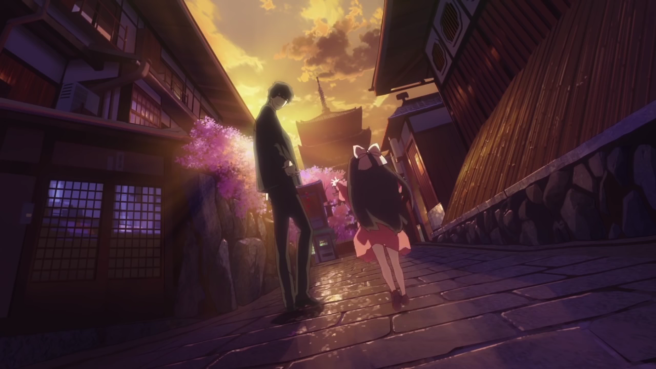
Even if you don’t watch anime, you might be familiar with Porter Robinson‘s Shelter. In a landmark collaboration with A-1 Pictures, their music video delivered a narrative that triggered a fairly heavy emotional response from me. And I wasn’t alone in this; many have praised Shelter’s emotionally impacting story. The problem for me was that I found myself being drawn to and affected by this heavy emotion, even though I realized that dwelling in it is probably not be the best thing to do.
The story of Shelter, on the outside, is a tragic but a beautiful story of a father who sacrifices himself in order to save his daughter from the apocalypse. What’s revealed by the end is that she is alone, living in a simulated world where whatever she draws comes to life:
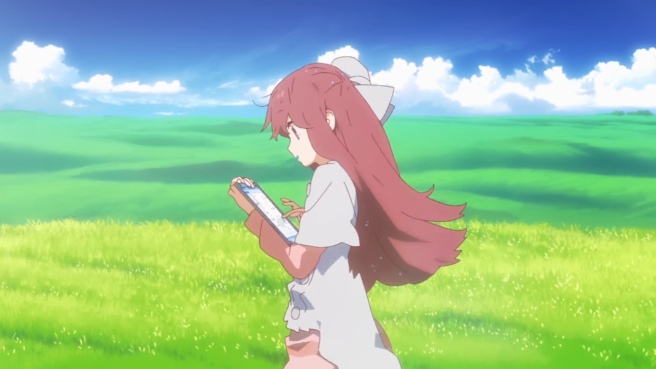
After watching this bittersweet ending, my frustrated roommate pointed out that if he were the father, he would have chosen to die together with the daughter instead of forcing her to be eternally alone. In response, I offered the thought that from the father’s perspective, his desire to save his daughter from dying was certainly understandable. I could even say this love the father had for his daughter was honorable… right? Well, I guess the perspective on this would depend entirely on the context of their world.
Because, if the story took place in our world (inhabited by other fathers, daughters, sons, and mothers), this decision would have been entirely shortsighted. Why did he not share his knowledge with other people? Why did he not collaborate with other fathers who would have also wanted to save their daughters? In his sole focus to save his daughter, the father neglected other individuals, and ultimately, he did a disservice to his daughter by depriving her of relationships and community. If the father loves and cares only for his family… is that really the kind of love that he would want to his daughter to understand?
This reminds me of the attitudes shaped by the ‘American nuclear family’ where it’s very often ‘us vs them’. I like to picture these families as if they are literally being sheltered from an actual nuclear war where they truly are relying only on themselves. It’s this ‘we are all we have’ kind of mentality. It’s… kind of lonely.
Having followed Porter Robinson’s other works, I understand that they–especially his last album, Worlds— are largely inspired by video games. And these games are inherently single player, meaning that we could rationalize the father’s decision with the context that was that no one had else existed in Shelter’s world.
But there are details in Shelter which helps us connect with that world emotionally; in the music video, the girl is clearly wearing a schoolbag, meaning that there has to be an entire community of kids going to that school. And what’s more, someone has to be broadcasting that news channel we saw:
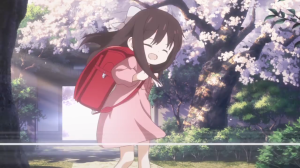
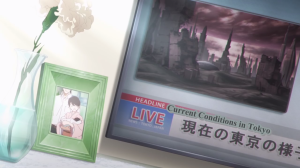
So the father–presumably–did what any father should, which is to provide what he thinks is best for his daughter. To fathers, this is clearly an act of love. But in the end, his decision was a selfish love that he wanted her to have, without fully understanding the quality of existence she would have to live out.
I’m going to stop this argument before it loses its effectiveness due to the music video being only 6 minutes long. Avoiding plot holes probably wasn’t the artistic priority. But for me–something I’ve yet to fully learn–is that, blindly engaging with this kind of emotional yet manipulative material can encourage depression. The feelings of emptiness and hopelessness are prone, and so it’s not always a good idea to give my heart to something simply because it drew my empathetic attention.
Since I started watching anime 8 months ago, I’ve been going on r/anime_irl pretty regularly. I think this subreddit is indicative of the themes in anime that the Western, internet-age audience resonates the most with: yuri, ecchi, loli, irony, and loneliness. These images (screencaps from anime) are essentially memes, and they are often not very wholesome. But still, in a way, it’s a community that comes together through expressing, acknowledging, and relating to the hardships and struggles in life:
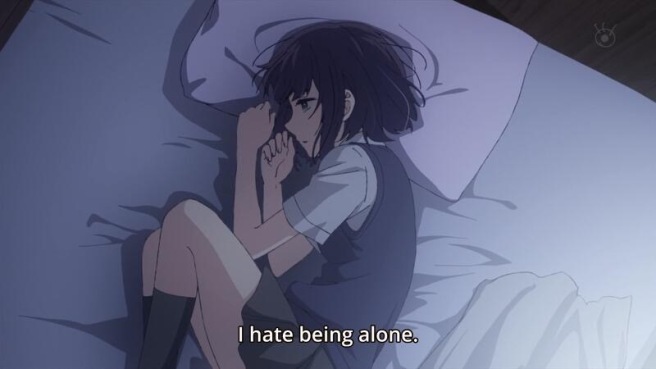
While I think that this is generally a good thing, like all good things, we need to be able to discern what’s real and what’s not. Under the filter of depression, these memes would not only feel relevant, they may perpetuate that state of mind, because I would have already have bought the lie that I’m alone. But in reality, we aren’t alone–even if for the fact that many of us feel like we’re alone.
My primary concern with Shelter (and many other anime or art that include these kinds of artificial sadness) is not in their production or plot, but rather in their normalization and acceptance of loneliness. Feeling alone is definitely valid, and art that depicts loneliness certainly has value for the artist themselves even if it’s not cathartic to others. But I would caution against dwelling in those mindsets, because they’re surprisingly contagious.
I’m not trying to lecture anyone though; what I really wanted to bring out in my criticism of the father’s decision is that we are actually surrounded by people. As we look outwards to our neighbors, community members, and even friends on the internet (that’s you), the perceived distance between you and them is often greater than it actually is. There are people who want to listen to your story, and to walk life together with you. It’s already too easy to build stereotypes and fears without realizing it, so we shouldn’t be selfish with our love–don’t shelter that love all by yourself. Let it grow even bigger. Love beyond just our families and close friends. What kind of a person needs love the most?
[Source]
Images are screenshots from Shelter
It’s funny how we can so easily get drawn into ourselves, whether it be just our very self or our families. It takes effort for many or most of us to get into the mindset that we are not alone, there’s community out there for us which can support us and strengthen us, and whom we can (and ought) do the same. Thanks for writing this article – it was a wonderful reflection on love/community and on this wonderful music video.
LikeLike
That was fast! Thanks for the feedback Charles, I always love reading them 🙂
LikeLiked by 1 person
I was browsing Tumblr when you messaged! 😁
LikeLike